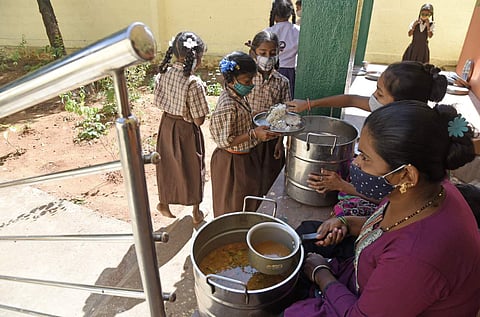

Food poisoning is a common illness that can be caused by eating contaminated food or water. The symptoms of food poisoning can vary depending on the type of bacteria or virus that caused the illness, but they often include nausea, vomiting, diarrhoea, stomach cramps, and fever.
In recent years, there has been a rise in the number of food poisoning cases reported in schools in India, especially due to midday or other meals served at residential schools or hostels. This is likely due to a number of factors, including poor food hygiene practices, inadequate food safety training for food handlers, and the use of contaminated ingredients.
Causes of food poisoning in schools
There are a number of factors that can contribute to food poisoning in schools, including:
- Poor food hygiene practices: This can include things like not washing hands properly, not cross-contaminating food, and not storing food at the correct temperature.
- Inadequate food safety training for food handlers: Food handlers need to be trained in safe food handling practices in order to prevent food poisoning.
- The use of contaminated ingredients: This can include things like fruits and vegetables that have not been washed properly, meat that has not been cooked properly, and dairy products that have not been pasteurised.
Symptoms of food poisoning
The symptoms of food poisoning can vary depending on the type of bacteria or virus that caused the illness, but they often include:
- Nausea
- Vomiting
- Diarrhoea
- Stomach cramps
- Fever
- Headache
- Muscle aches
Treatment of food poisoning
Most cases of food poisoning are mild and resolve on their own within a few days. However, in some cases, food poisoning can be more severe and may require medical treatment.
How can you be more cautious?
- Be careful when eating food from street vendors.
- Avoid eating raw or undercooked meat, poultry, and seafood.
- Wash fruits and vegetables thoroughly before eating them.
- Drink bottled water or water that has been boiled or filtered.
- Be aware of the signs and symptoms of food poisoning. If you think you may have food poisoning, seek medical attention immediately.
